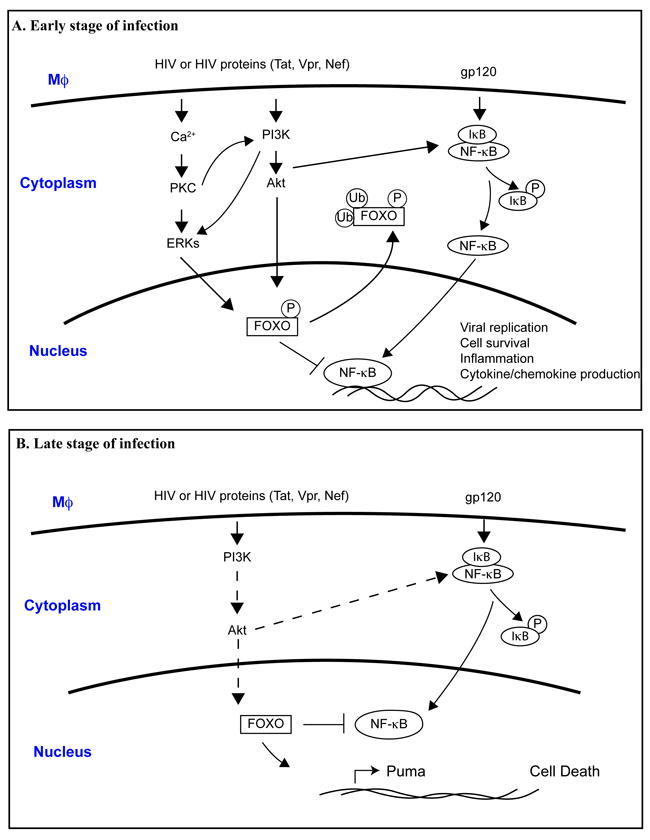Fig. 1. Proposed mechanisms for how FOXO affects macrophage function during early and late stage of HIV-1 infection.

A. In the early stage of HIV-infection, the binding of HIV-1 or HIV-1 proteins with macrophage cell surface receptors induces intracellular signaling cascades such as Akt-1, ERKs, and NF-κB pathways. Activated Akt-1 and ERKs may inhibit FOXO function by phosphorylation. Subsequently, phosphorylated FOXO translocates to the cytoplasm and facilitates ubiquitination and degradation. As a consequence, inhibitory effect of FOXO to NF-κB was removed, which leads to enhanced NF-κB activation that promote viral replication, cell survival, inflammation and cytokine/chemokines production.
B. In the late stage of HIV-infection, it has been suggested that productive HIV-1 infection compromises PI3k/Akt-1 pathway, which lead to the activation of FOXO and translocation of FOXO in the nucleus. Activated FOXO triggers apoptosis pathways through increased expression of apoptotic proteins such as Puma. Activated FOXO can also inhibit NF-κB, preventing its pro-survival function. Dashed line indicates signal attenuation.
